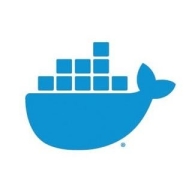

Google Kubernetes Engine and Docker are competitive solutions in the containerization and cloud environment management sector. GKE holds an advantage in terms of scalability and seamless integration with Google services, while Docker stands out due to its ease of use and cost-effectiveness.
Features: Google Kubernetes Engine provides autoscaling, integration with Google services, and robust infrastructure management, facilitating easy management of containerized environments across multiple clouds. Docker excels with its ease of use, security, and comprehensive containerization capabilities, enabling the deployment of lightweight, portable applications across diverse environments.
Room for Improvement: GKE could enhance its security features, simplify network configurations, and improve monitoring tools. Meanwhile, Docker could benefit from improved stability, enhanced documentation, and integrated user interface tools for easier management and orchestration.
Ease of Deployment and Customer Service: GKE is optimized for public and hybrid clouds, integrating well with multiple cloud providers but has noted issues in customer support response and quality. Docker offers flexibility in on-premises, public, and hybrid cloud deployments but faces challenges with support, particularly its newer licensing model changes.
Pricing and ROI: GKE's costs can accumulate with cloud resources, but its pricing aligns with its features, offering substantial ROI despite potentially high costs for certain services. Docker, being open source, generally reduces costs, with Docker Enterprise offering additional features at a premium, making it an affordable option for extensive containerization needs, providing excellent ROI.
By migrating from AWS to Google Cloud Platform, we have saved a lot of time and money.
Previously, only one or two applications could run on a server, but now it can handle hundreds of applications, scaling up or down as needed.
The autoscaling capabilities of Google Kubernetes Engine have significantly impacted our operations.
If I have 100 replicas of containers and the traffic suddenly pushes to 1,000 within a fraction of a second, the selected machine type must be fast.
Docker is a time-tested, proven solution with industry-wide applications.
In terms of communication between services, perhaps the configuration within networks between containers could be improved.
When looking at the web interface, it feels kind of slow due to the many features involved.
Log observability could be made easier so someone from high school can use it without having technological expertise.
It would be helpful if I could easily find log information in a particular namespace without needing to write certain labels.
I consider Docker's pricing to be affordable.
Instead, we only pay for the hardware we use, which results in cost-cutting.
The on-demand nodes are quite expensive.
Google is considered cheaper compared to AWS, making it suitable for smaller to medium companies concerning cost.
It allows the software to run on various machines without compatibility issues, saving a lot of time.
The most valuable feature is the simple containerization.
The most valuable aspect of Google Kubernetes Engine (GKE) is its managed nature, which significantly reduces the burden on our platform team.
The best advantage of Google Kubernetes Engine is that it manages Kubernetes for you, making everything related to the master nodes managed for you with automatic updating and upgrading.
GKE is easier to understand and use than Elastic Kubernetes Service.
| Product | Mindshare (%) |
|---|---|
| Docker | 4.7% |
| Google Kubernetes Engine | 2.4% |
| Other | 92.9% |

| Company Size | Count |
|---|---|
| Small Business | 22 |
| Midsize Enterprise | 4 |
| Large Enterprise | 35 |
| Company Size | Count |
|---|---|
| Small Business | 21 |
| Midsize Enterprise | 6 |
| Large Enterprise | 16 |
Docker provides a robust containerization platform, enabling identical environments across machines. With features like portability, fast deployment, and minimal resource consumption, Docker supports development, facilitating multitier architectures and integrating seamlessly with Kubernetes.
Docker offers an advanced containerization solution that enhances application management through automation and security measures. By isolating environments and managing dependencies, Docker supports platforms for scalable application development. Its integration with orchestration tools like Kubernetes and independence from host operating systems enable developers to create lightweight applications effectively. Although known for its cost efficiency and flexibility, Docker could improve in areas such as stability, command-line usability, and Windows performance integration. Users also point out the need for enhanced documentation, simplified management tools, and better persistence storage options, along with stronger marketing and easier user adoption.
What important features does Docker provide?Industries leverage Docker for application packaging, deploying microservices, and CI/CD processes. It supports DevOps, enhances backend service management, and enables resource-efficient development environments. Docker's compatibility with tools such as Jenkins ensures seamless integration and orchestration in modern IT workflows.
Kubernetes Engine is a managed, production-ready environment for deploying containerized applications. It brings our latest innovations in developer productivity, resource efficiency, automated operations, and open source flexibility to accelerate your time to market.
We monitor all Container Management reviews to prevent fraudulent reviews and keep review quality high. We do not post reviews by company employees or direct competitors. We validate each review for authenticity via cross-reference with LinkedIn, and personal follow-up with the reviewer when necessary.